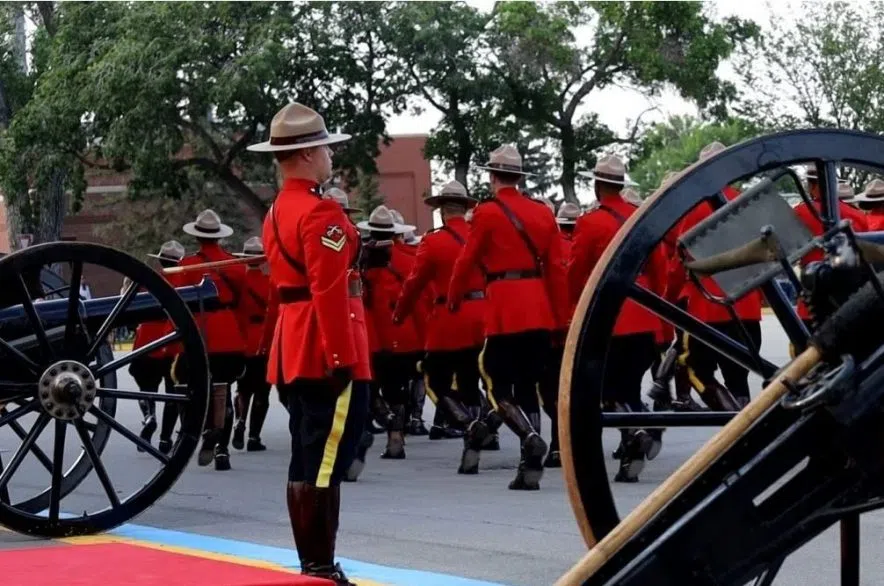New data show people across Saskatchewan support the RCMP, and have concerns about the Saskatchewan Marshals Service.
The survey was released by the National Police Federation, a union representing roughly 20,000 RCMP officers.
According to the public opinion research which surveyed 1,000 adults in late August:
- 78 per cent of those surveyed are satisfied with the policing provided by the RCMP; and
- More than 3 in 4 of those surveyed feel there are more important priorities to deal with than establishing a new Marshals Service.
The Saskatchewan Marshals Service – which is expected to be operational in 2026 – will be a full police force, and is being created to fill in gaps, particularly in rural areas, and assist other police forces with difficult, time-consuming investigations.
The Marshals Service has been a hot topic in the provincial election campaign.
NDP leader Carla Beck said if she’s elected premier, she will scrap the Marshals Service.
The service is expected to cost $20 million per year once operational. Beck said she would use those dollars to hire more Mounties and expand detox services.
Asked about the survey results on Thursday, Saskatchewan Party leader Scott Moe said he is committed to bolstering the ranks of both the Mounties and municipal police, in addition to creating the new force.
“Since 2011 the Saskatchewan party has funded an additional 192 RCMP officers,” Moe said.
“We have committed recently to funding an additional 180 RCMP officers, so almost 400 additional RCMP officers is the commitment of the Saskatchewan Party … We have added and committed to and are now hiring over 100 municipal officers in those communities as well, to ensure that those communities are safe and a family can take their family out to the park or for a walk after supper and feel safe when they do so.”
Moe said his party is committed to investing more into the RCMP and municipal police forces, but said the new service is still necessary “to support those other two entities and to ensure that we have safer communities as we move forward with the drugs that are in our communities.”
He added that all of the increased investment in policing is “a secondary focus to recovery,” noted that drugs are often the root cause of violent crime.
“And that’s why you see us building 500 recovery beds and opening up access points for those recovery beds to be to be utilized by Saskatchewan people,” Moe said.
“Five hundred recovery beds, 500 additional police officers. That’s our plan, and that’s our commitment.”
In April, the provincial government and the RCMP inked an agreement that would see the province fund hundreds more officers if the Mounties could recruit to fill those positions.
According to the union, the need for more officers in the province is urgent, as response times are too high.
“This recent public opinion research shows that increased resources for existing police services, including the Saskatchewan RCMP, as well as reducing response times is a priority for Saskatchewanians now: it cannot wait until 2026,” Brian Sauvé, the union’s president, said in a statement.
“We have highly trained RCMP Members throughout Saskatchewan who are already deployed and are well-respected in their communities. Let’s give them the tools and resources they need to better serve the people of Saskatchewan, which is what a majority of residents indicate they want to see happen.”
The Saskatchewan Marshals Service has already been allocated $14 million in start-up costs, and the RCMP union said this was done without consultation or engagement with the communities it intends to serve.
–with files from 980 CJME’s Lisa Schick
Editor’s Note: This story has been updated to include comments from Scott Moe.







